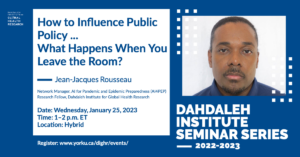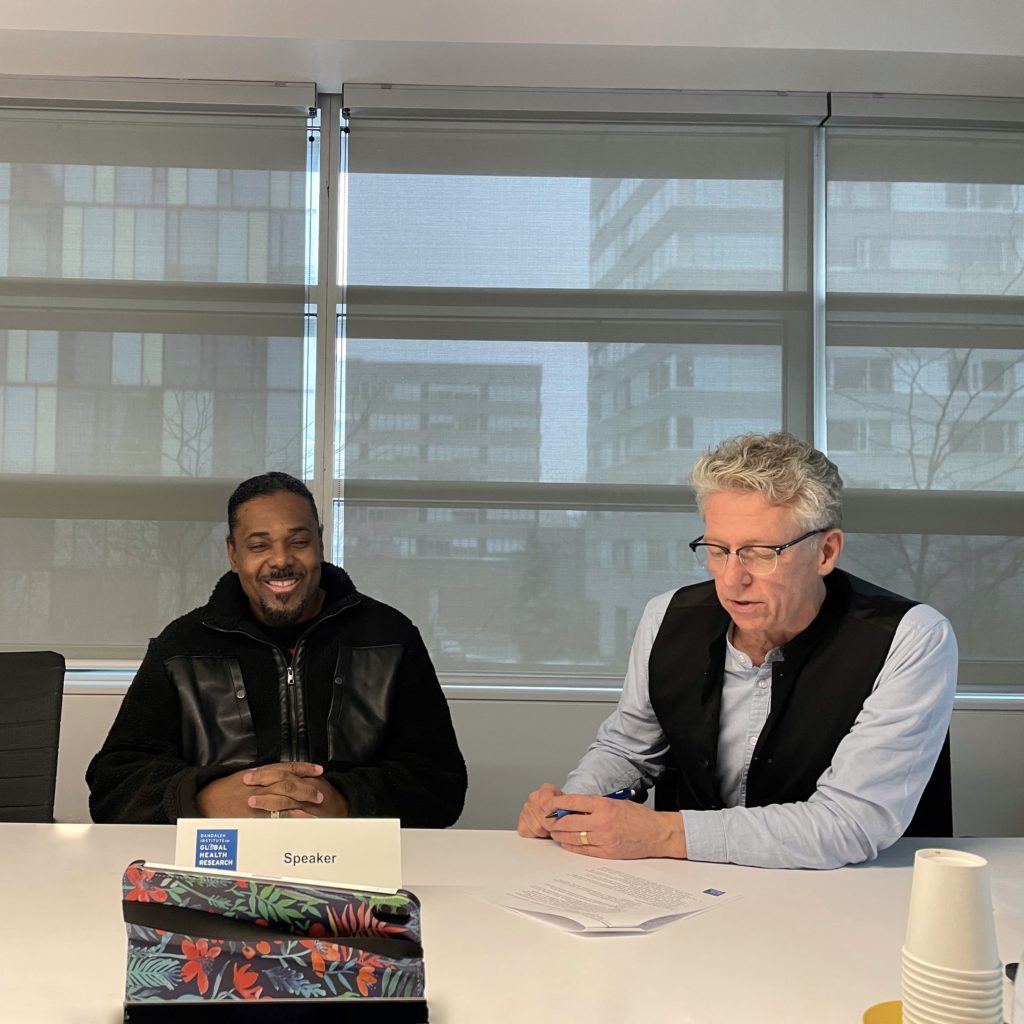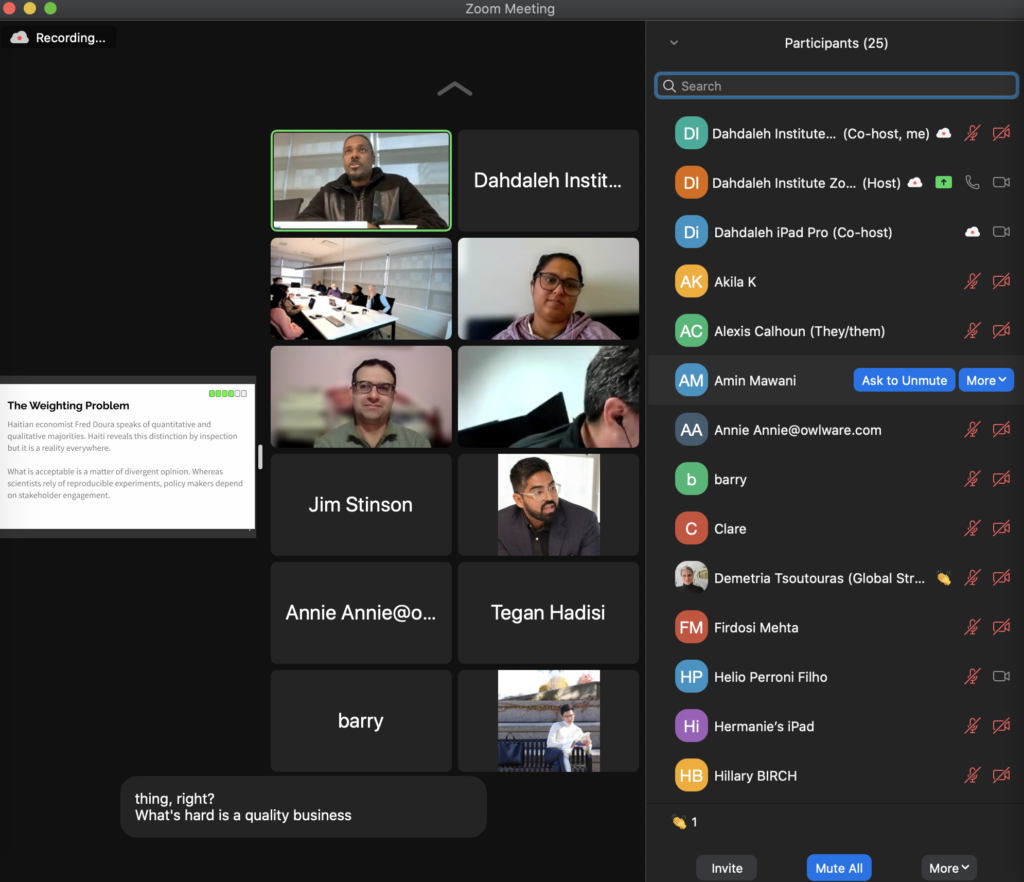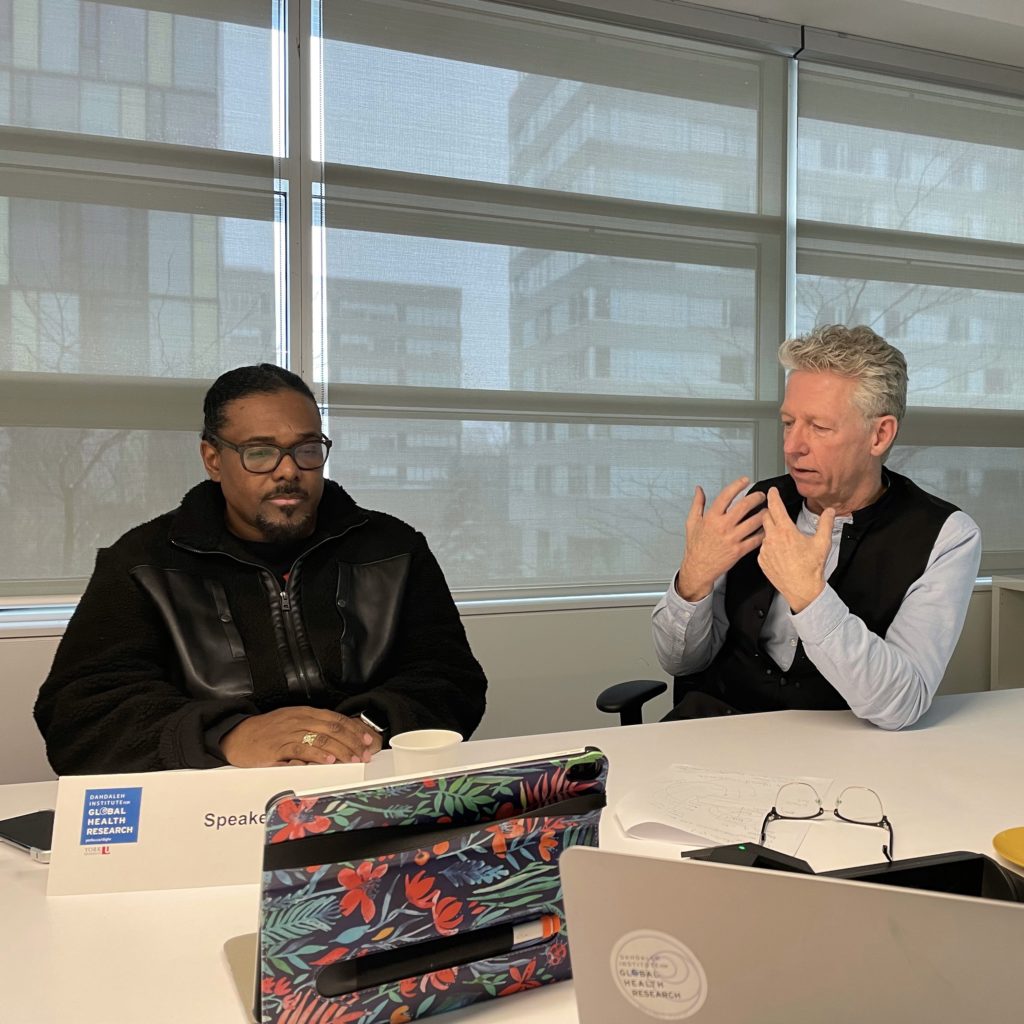Post
Published on February 8, 2023

On January 25, Dr. Jean-Jacques Rousseau used his broad experiences in government in Canada and abroad to comment on instances when scientific and technical advice fails to have a positive influence on public policy: "Science is necessary but not sufficient for positive public policy impacts". For him, the winning combination is science and a deep understanding of the context in which policies are deployed. Therefore, the onus is on experts to close the gap between technical solutions and the audiences that will be subject to their effects.
To illustrate the point, Dr. Rousseau introduced the distinction between quantitative and qualitative majorities by Haitian Canadian economist Fred Doura. The target of a policy cannot be assessed simply by counting. This is the weighing problem. He specified, "what is acceptable is a matter of divergent opinion. Whereas scientists rely of reproducible experiments, policy makers depend on stakeholder engagement". Technical experts that want to influence policy makers must also engage with that thinking. The talk ended with reflections on how his time as advisor in Haiti helped improve his ability to understand policy impacts in Canada.
Watch the seminar presentation below:
Themes | Global Health & Humanitarianism, Global Health Foresighting |
Status | Active |
Related Work |
N/A
|
Updates |
N/A
|
People |
Jean-Jacques Rousseau, AI4PEP Network Manager, Global Health & Humanitarianism Alum
|
You may also be interested in...
Student Opportunity FW24-25 - Humanitarian Water Engineering Lab RAY Student
Job ID: 69865 Job Title: Humanitarian Water Engineering Lab RAY Student Application Deadline: Thursday, August 15, 2024 @ 11:59 p.m. ET Applications are only accepted through the Career Centre. Go to the Experience York portal through Passport ...Read more about this Post
Black History Month 2023: Black Resistance
A series of panels remembering achievements in the face of struggles. Black History Month is a distinct period for honouring history, negotiating current realities, and imagining potential futures for Black communities. In recent years, the Harriet ...Read more about this Post
Congratulations! Jude Kong Selected to Develop Global South Artificial Intelligence for Pandemic and Epidemic Preparedness and Response Network
The five-year project is aimed at ensuring vulnerable and at-risk populations are included in disease outbreak management and policies. At a time when the risk of emerging or re-emerging infectious diseases (ERIDs) is increasing, an ...Read more about this Post



